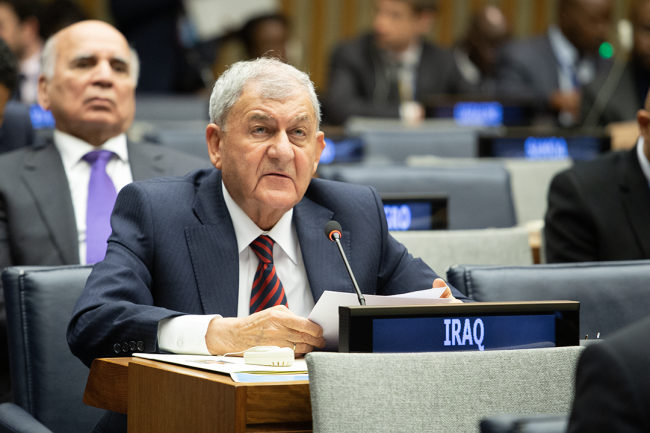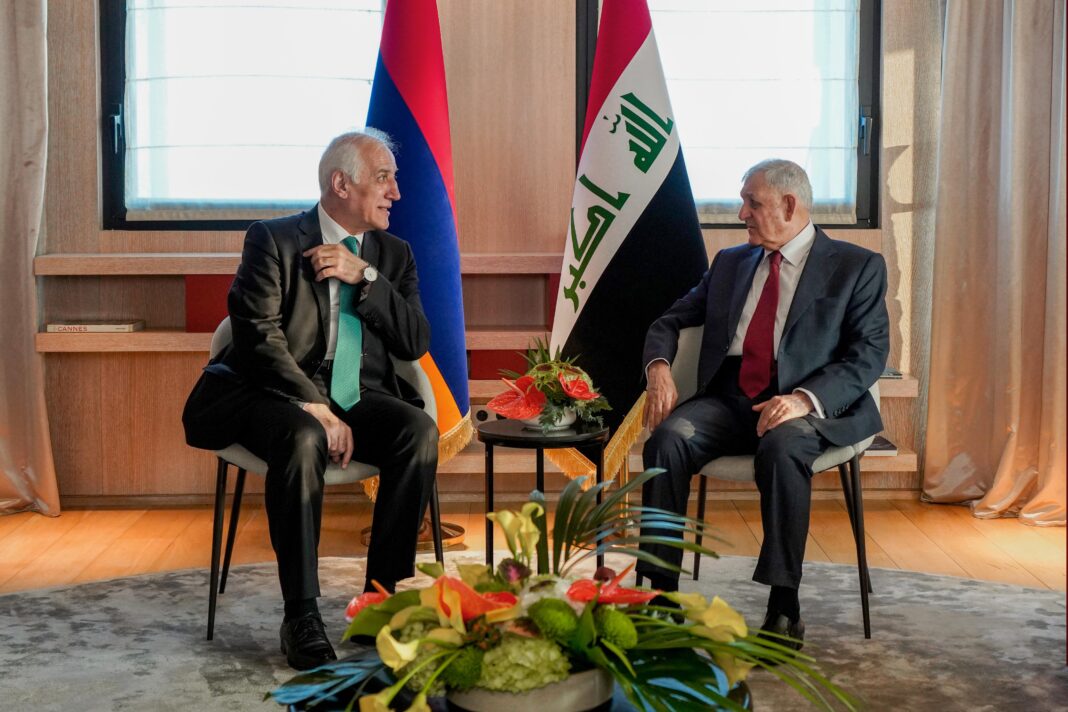Iraq’s President Abdul Latif Jamal Rashid issued a strong warning on Wednesday about threats to Iraq’s water security. Speaking at the 80th United Nations General Assembly, Rashid emphasized that upstream activities by neighboring countries must not jeopardize Iraq’s vital water supplies.
He urged both Iran and Turkiye to respect Iraq’s rights by guaranteeing fair and equitable flows in the Tigris and Euphrates rivers.
The president painted a dire picture of Iraq’s worsening environmental conditions. He highlighted the increasing droughts, desertification, and frequent dust storms that have severely affected the country. Rashid directly linked these challenges to the growing impacts of climate change, which intensifies the water crisis.
In response, Iraq has launched several initiatives focused on renewable energy projects, reforestation efforts, and stricter water management policies.
Moreover, Rashid stressed the importance of global cooperation. He called on the international community to uphold the principle of “common but differentiated responsibilities.” This approach recognizes that while climate change affects all countries, each nation has different capacities to address its consequences.
Iraq also plans to reduce its heavy dependence on oil revenues. Rashid announced the country’s strategy to diversify its economy by expanding agriculture, boosting industry, and investing in renewable energy.
He invited global partners to join Iraq in upgrading water infrastructure, modernizing power grids, and improving public services. These steps aim to build resilience against environmental and economic shocks.
On security matters, the Iraqi leader voiced a strong desire for a Middle East free from weapons of mass destruction. He supported the use of peaceful nuclear energy under strict international oversight. Rashid firmly rejected any unauthorized foreign military operations in Iraq’s airspace, asserting the country’s sovereignty.
The president also welcomed ongoing peace initiatives in the region, including efforts by Turkiye and the disarmament of the PKK. He reaffirmed Iraq’s commitment to maintaining stable and cooperative relations with neighboring Kuwait.
These diplomatic efforts complement his broader vision for a secure and sustainable Iraq.
In summary, Iraq’s water security remains a top national priority. President Rashid’s address highlighted the urgent need for regional cooperation to protect the Tigris and Euphrates.
Without fair river flows and shared responsibility, Iraq’s environmental and economic stability could face severe risks in the years ahead.



